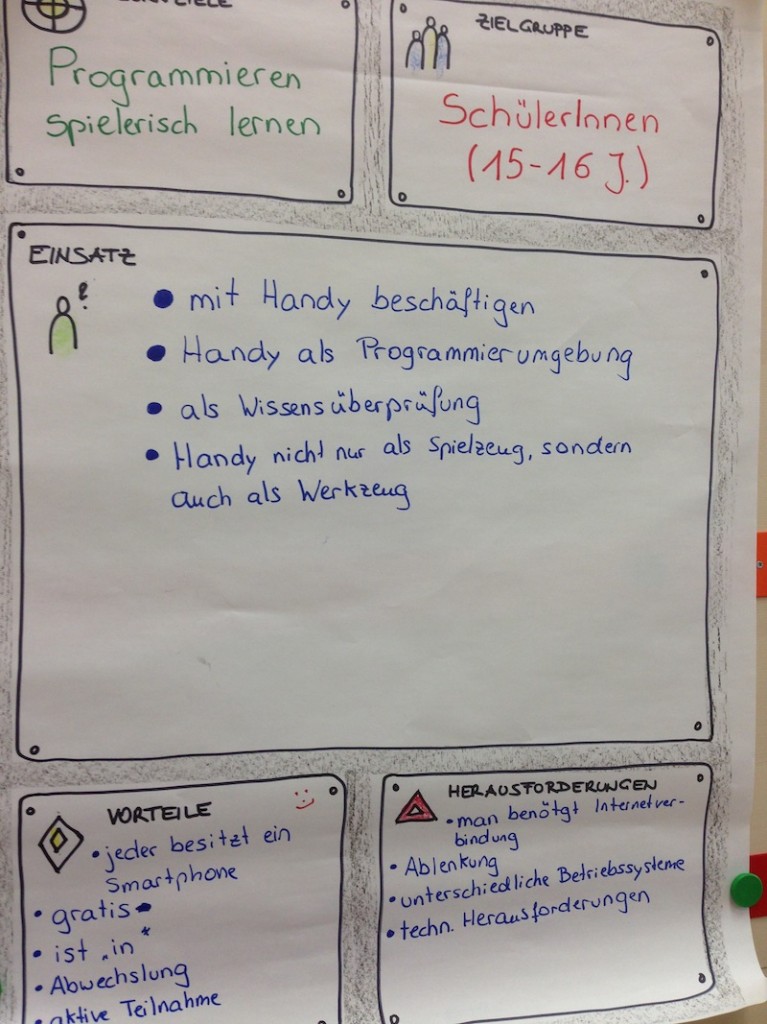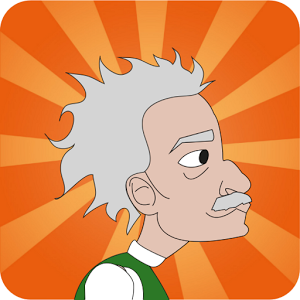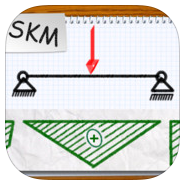Our publication about „Development of a Collaborative Learning Game Using External Plastic Cards as an Input Device on an iPad“ in the International Journal of Interactive Mobile Technologies (iJIM) is now published.
Abstract:
This paper evaluates and describes the usage of plastic cards, coated with conductive paint, as an input device for capacitive touchscreens. By using the developed card prototypes it should be proofed, that usage of this new kind of input device can be handled by primary school pu- pils in a collaborative learning game. For this reason an educative digital learning game has been developed which can be controlled by the card prototypes. The game asks questions of general knowledge and the answer can be given by putting the proper plastic card on the touchscreen.
The evaluation of the game by two groups of four children pointed out, that the cards can be easily used to identify a specific user. Although evaluation shows that the card con- trol has weaknesses to reliably detect the correct answer during the game phase. All pupils enjoy to play the game and they additionally state, that they like the usage of the cards.
Beside the problems with a reliable card recognition the evaluation shows that the collaborative concept of the game is promising due to the fact that the pupils are always work- ing together on finding a solution for the answer. Further they support each other in handling and understanding the plastic cards which leads to a deeper understanding of the technical backgrounds.
[Link to the full article (logged in mode only)]
Reference: Lexow, S., Ebner, M. (2014) Development of a Collaborative Learning Game Using External Plastic Cards as an Input Device on an iPad, International Journal of Interactive Mobile Technologies (iJIM), Vol. 8, Nr. 2, p. 12-17







